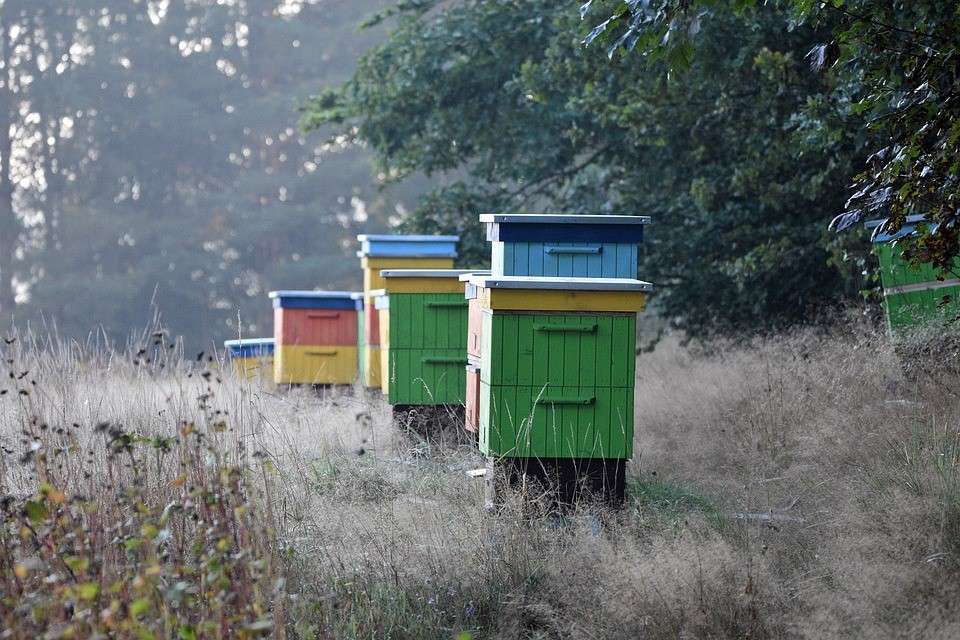Starting a beekeeping business in Africa is an interesting and lucrative business. It does not require a lot of space to start. It is not capital intensive too. beekeeping business is a perfect business when looking for a farming venture which is not time consuming. You can also combine this with other agricultural or conservation activities.
In this article, I am going to share the benefits of beekeeping business in Africa, products that you can derive from your bee farm, equipment required to start, how to set up your apiary, training opportunities, and the ways you can market your products.
Table of Contents
Benefits of Beekeeping Business in Africa
Africa accounts for roughly 10% of the world’s honey production. There is still a huge potential as the demand for honey outweighs production. Some of the benefit of beekeeping include:
- Bees are essential pollinators of plants helping to increase crop yields.
- Bees provide a sustainable income generating activity for farmers from selling the bee products
- Beekeeping’s primary product is honey which is used as a natural sweetener and can be used by people suffering from various lifestyle diseases.
- Bees produce propolis and royal jelly which have medicinal value.
- Beekeeping also assists in environmental conservation.
- Beekeeping does not interfere with the other agricultural activities and it is not resource intensive.
- You also don’t require a lot of investment in labor.
Products You Can Get from The Bee Farm
Some of the products you can get from your bee farm include:
- Honey: which is currently also used as an alternative sweetener from sugar.
- Beeswax: which is used in making candles and repair of shoes.
- Propolis: which is used as medicine.
- Royal jelly: which is used in medication for various diseases.
- Pollen: used for pollination of other crops in the farm.
- Queen bees that can be bought by other farmers starting beekeeping.
What Equipment Do You Need to Start?
Beekeeping business in Africa is not equipment intensive. Majority of the farmers use traditional hives to produce honey for their own consumption. To derive high yields from your farm, you will need to invest in modern equipment.
Modern beehives will increase your yields. It is estimated that you can harvest between 12 to 15 kgs of honey from the Langstroth hive.
Smokers are essential for keeping the bees calm. It destructs their smell and therefore becomes less defensive.
Feeders are very important when starting out as they will attract bees to new hives. They are crucial in areas without much nectar for the bees to feed on.
A hive tool is used for opening the hive and lift frames. It can also be used to scrape off excess wax and propolis.
The beekeeping suit and gloves are essential to provide protection when harvesting the honey.
You can also use essential oils to attract bees to the hives
The advantage with beekeeping is that you can keep scaling it up. After every harvest, you can add more beehives from the proceeds gained. These small increments every year can lead to a huge investment where you can produce a significant amount of honey.
Where Can I Be Trained?
Training opportunities are available from different platforms. There are cooperative movements that bring together farmers, train them and offer starter beekeeping kits. In exchange, they market the products on behalf of the farmers.
A variety of Non-Governmental Organizations also focus on the training in order to protect the ecosystem. For example, Self Help Africa and Winrock International carry out training programs across Africa to enable rural families to gain a sustainable source of livelihood.
Government agencies through the Ministry of Agriculture also offer training programs for aspiring bee farmers. You can check in with your local Agriculture office for the training schedule and dates.
After training, you are now ready to set up your apiary.
Setting Up the Apiary
It is necessary to select a good site away from strong winds, human activity and noise. The site should be easy to access but not prone to thieves. Prepare the site by clearing vegetation around the apiary to allow easy movement and protect the site from thieves and unwanted animals. Place hives and ensure there is enough space to allow for easy movement. Ensure that they are protected from intrusion by ants who cause trouble for beekeepers.
Inspect the hives at least once a month to check for the presence of pests and diseases. The inspection will help you to know when the honey is ready to be harvested. When the honey is ready, plan to harvest either early morning or in the evening. Keep the harvesting calm and gentle so as not to upset the bees. After the harvest, support the bees to strengthen new colonies. In the case of drought, supplement their feeding by offering good quality sugar syrup and you can go ahead and market your products.
How to Market the Bee Products
Bee farmers in the rural areas may find it hard to market their products. Creativity is required to find sustainable markets. You can opt to do value addition by packaging and labelling the products. Packaging honey is not complicated. You can source packaging materials locally.
Cooperative groups are also available in Africa that support beekeepers. They are responsible for finding markets for the members. They also support members by giving equipment on loan and then deduct the expenses from the proceeds of the harvest. Social media can also be a great tool for marketing your products. If you offer good quality honey, you will enjoy return clients and referrals.
Final Thoughts
African honey production is still below its potential. Adopting modern equipment will help to increase production. You can start small and scale your beekeeping business into a big and sustainable venture.

